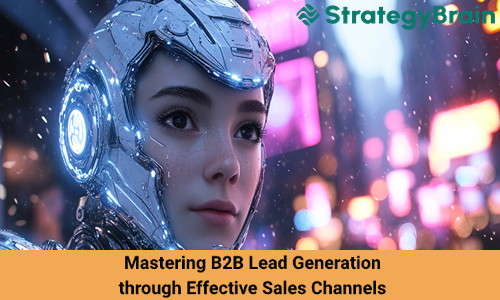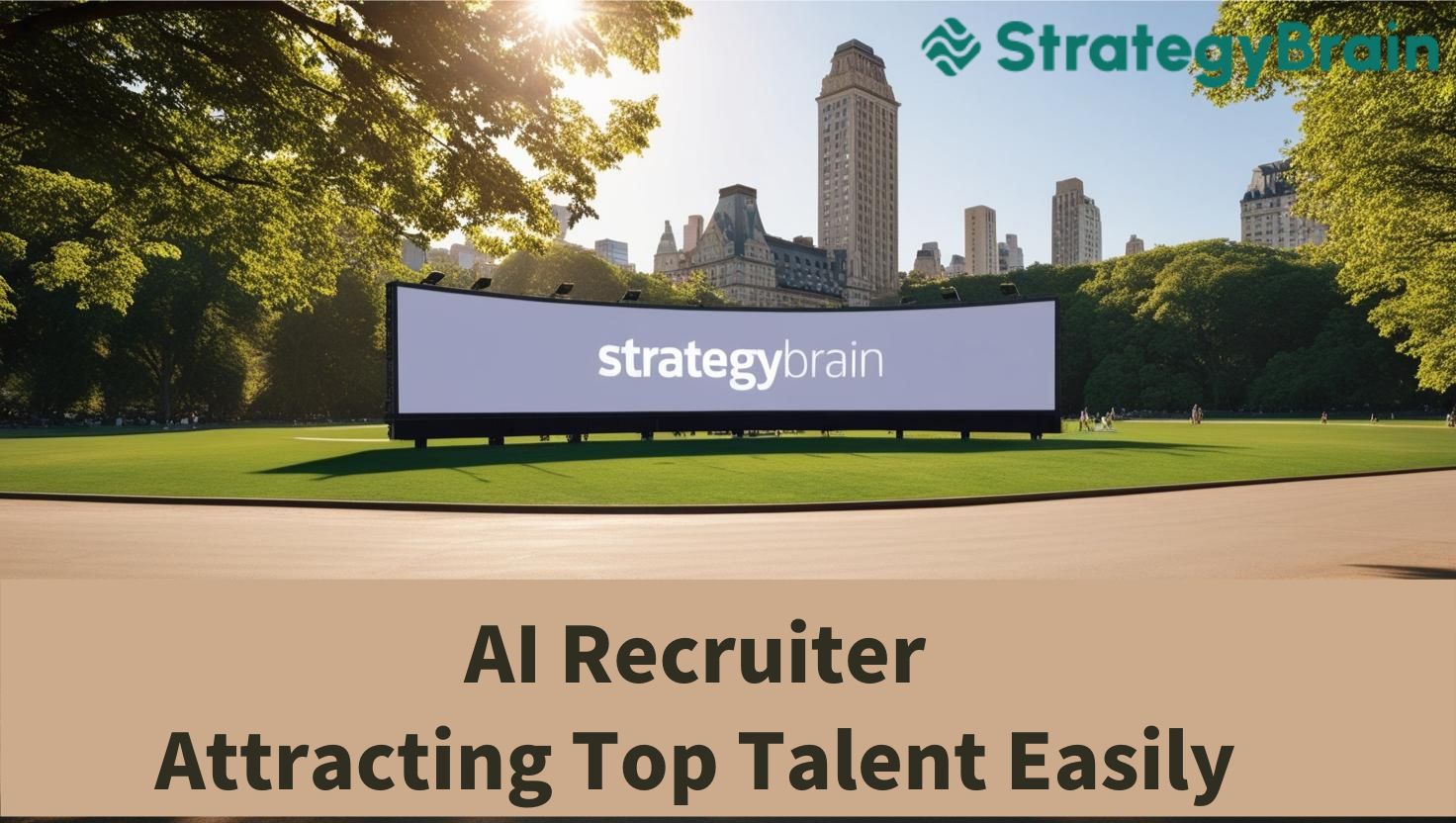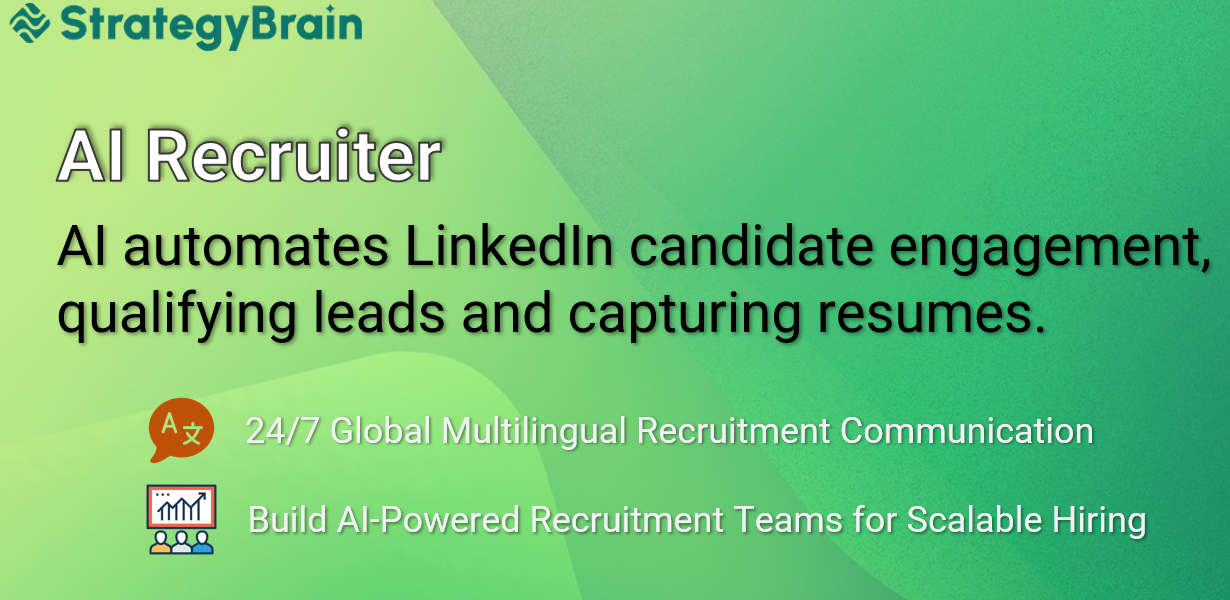
Today, many successful businesses follow the principle “less is more.” With numerous sales channels available, they must wisely invest resources to grow and boost revenue. This careful approach is vital in B2B lead generation, where each choice affects profits. This guide will discuss 11 effective B2B sales channels to improve lead generation. It will offer insights, tips, and examples to support your business.
Choosing the right sales channels is vital. It affects your business’s future, not just immediate sales. The right channel boosts visibility to B2B leads. It also matches your brand’s values and meets customer expectations.
To pick the best sales channels, first analyze the market and understand your industry. Check out competitors. Then, find channels that connect with your target audience. Evaluate each channel’s strengths and return on investment (ROI). This helps in better resource allocation and building relationships with potential clients. A good channel strategy boosts brand credibility and ensures steady communication. This, in turn, increases trust and engagement. With careful planning, businesses gain an edge in B2B lead generation.
The B2B buyer’s journey is complex. It often starts before a prospect talks to your sales team. They first learn about your brand through different channels. This could be a targeted social media ad or a captivating presentation at a conference. Importantly, choosing the right channels helps you reach the audience most likely to become leads.
Understanding the buyer’s journey is key for generating leads. It begins with subtle actions. These include sharing insights via email, hosting webinars, and forming partnerships. Using data analytics, businesses can better target their audiences.Personalization is crucial. Tailored messages that address specific needs boost engagement and conversions. A flexible, insightful media strategy helps B2B sales. It builds connections that drive growth and a competitive edge.
Lead generation in the business-to-business (B2B) landscape requires strategic insight and adaptability. Successful B2B lead generation is about knowing the market. It requires using the right tools and channels to reach potential partners. By identifying key industry pain points, businesses can build authentic connections. They can do this by tailoring solutions to these challenges. This will drive sustainable growth. We must use data analytics. It is crucial for refining outreach.It ensures every interaction is focused and productive. To succeed in B2B lead generation, companies should promote continuous learning and adaptation. They must stay aware of changes in customer needs and technology. This strategy improves immediate sales and strengthens long-term relationships, leading to lasting success.
By focusing on the most suitable sales channels, businesses can generate more qualified B2B leads with less effort. A digital marketing firm might prefer targeted sales efforts over broad social media campaigns. By matching your sales strategy to the right channels, you save time and resources. This approach leads to better business-to-business lead generation.
Choosing the best sales channels boosts lead generation and growth. Targeted outreach is key. It should meet potential clients’ needs. Advanced CRM tools and analytics offer insights. This makes strategies more efficient and impactful. Combining account-based marketing with automated nurturing keeps it personal while scaling. This attracts better leads and strengthens customer ties. Such ties turn into long-term partnerships, fueling growth. Regularly updating strategies helps businesses stay competitive and adapt to market changes.
Sales channels must enable real talks with prospects. This builds trust before the sales pitch. Personalized emails or engaging webinars are key. They nurture B2B leads and build lasting relationships. Each prospect interaction should be consistent and trust-building. Train your sales team to listen, respond, and offer tailored solutions. Use tools to track interactions. This ensures informed conversations. Such practices improve engagement and build a trustworthy brand. It encourages open, reliable communication. A personalized approach fosters closer ties, moving prospects towards conversion. It also lays the groundwork for long-term relationships based on respect and understanding.
In this section, we will explore various sales channels that boost B2B lead generation. When chosen and used well, these channels can improve how you capture and nurture leads. Each channel has its own benefits and can be picked based on your industry, target market, and goals. By understanding and using these channels, your business can grow and succeed.
Email marketing remains one of the most potent tools for B2B lead generation. Businesses can boost sales by sending personalized emails to potential clients. Understanding your audience’s needs and crafting valuable content is key. With the right approach, email marketing can build lasting relationships. It keeps your brand visible and leads prospects to a purchase.
Direct sales have been a staple in the business world since commerce began. Today, AI tools have transformed outreach, making it easy for small teams. For example, ProspectAI automates much of the process. This allows businesses to focus on connecting with qualified B2B leads.2. Social Sales on LinkedIn
LinkedIn remains a powerhouse for B2B lead generation. Using LinkedIn Sales Navigator, businesses can find and connect with leads personally. Moreover, a strong brand on LinkedIn attracts leads. Thus, it’s a key channel for B2B sales.
In-person events offer unique chances to meet potential clients. At trade shows, businesses can show their products and connect with prospects. These meetings are crucial for generating valuable B2B leads.
Virtual events are now popular. They help businesses reach more people. By hosting webinars or joining online conferences, your business can be seen as a leader. This, in turn, attracts B2B sales leads interested in your expertise and solutions.
SEO and content marketing are vital for B2B leads. They’re key strategies. By offering valuable content that solves problems, you attract prospects seeking solutions.
Email marketing is key for B2B leads. First, segment your audience. Then, send tailored content. This engages interested prospects and nudges them toward conversion.
Paid media quickly boosts visibility and reaches new audiences. For instance, Google Ads or social media can effectively target B2B sales leads.
Affiliate programs use partners to widen your reach and gain new customers. By rewarding current customers or partners to promote your products, you can access new markets and boost B2B leads.
Trade shows let businesses showcase their products to the right audience. They’re great for entering new markets and raising brand awareness among potential B2B leads.
For businesses selling physical products, platforms like Shopify and Alibaba are key. They help you reach B2B customers, facilitate transactions, and expand your customer base.
Partnering with consulting or professional services firms can unlock new B2B opportunities. By teaming up with experts in related fields, businesses boost their credibility and reach new audiences.
To use these channels well, businesses must plan.lead acquisition strategy tailored to their goals and target audience. First, identify your ideal customer and the best sales channels. Then, set clear goals, like increasing awareness or sales. Next, research the best channels for your audience, looking at trends and competitors. After that, create a plan with benchmarks and ways to improve. Use online methods such as SEO and social media, along with offline methods like networking and direct sales. Stay flexible to adapt to market changes and customer needs. This strategy ensures growth and success.
Today, effective B2B lead generation is vital for a steady flow of prospects. First, adopt a strategy that meets your audience’s needs. Then, use the right sales channels to boost your efforts. Focus on potential clients’ pain points to build valuable relationships. Also, use insights from customer interactions to improve connections. This approach will support sustained business growth.
In today’s business to business lead generation lead generation, using data is crucial. First, gather and analyze data to understand prospects better. This helps you target, personalize, and forecast effectively. Use analytics tools to learn about customer behavior. This improves your strategies. Good data enhances targeting and lead conversion. Build a data-focused culture for better decisions. This aligns efforts with goals and appeals to clients. Use this strategy to grow and stay ahead.
Knowing the buyer’s journey is crucial. It helps identify where prospects meet your brand. By mapping this journey, businesses can smoothly guide B2B leads through the sales funnel.
Researching competitors’ strategies provides insights into successful approaches within your industry. By identifying the channels your competitors use to generate B2B leads, you can refine your own strategy and gain a competitive edge.
Each channel has unique benefits. Businesses should pick channels that match their goals. Whether aiming to boost brand awareness or increase sales, choosing the right channels is key for B2B lead generation.
Businesses should regularly check performance metrics to evaluate sales channels. They can improve B2B lead generation by analyzing data and making changes.
Using AI in sales can boost efficiency and personalize interactions with B2B leads. For instance, LeadGenPro automates prospecting and engagement. This frees up sales teams to build relationships and close deals.
Q1: What are the most effective channels for generating B2B leads?
The best channels depend on your goals and audience. Common options are direct sales, LinkedIn, email marketing, and trade shows.
Q2: How can I measure the success of my B2B lead generation strategies?
A2: Success can be measured through key metrics such as conversion rates, lead quality, and return on investment (ROI). Regularly monitoring these metrics will help you refine your strategies.
Q3: How does AI impact B2B sales today?
A3: AI makes B2B sales more efficient. It automates tasks, analyzes data, and personalizes communication with leads.
B2B lead generation is always changing. Businesses can grow by picking the right sales channels. These channels include direct outreach, digital marketing, and partnerships. Each offers unique chances to attract and convert leads. AI technologies make this process even easier. They help businesses offer more value and succeed in the competitive B2B market.
Businesses can lead in the B2B market by fostering continuous learning and adaptation. Encouraging teams to adopt new technologies keeps them agile and responsive to market changes. Training in areas like AI analytics and digital integration enhances lead generation. Working with innovative companies and attending events sparks new ideas. It improves strategies. This method gets better leads and shows businesses as industry leaders. It’s StrategyBrain’s AI Sales Rep.
StrategyBrain’s AI Sales Rep revolutionizes the sales process by leveraging advanced AI capabilities. It is designed to enhance sales efforts through these key features:
The advantages of using AI to build customer relationships in B2B sales include improved understanding of customer needs through data analysis, enhanced communication through personalized messaging, and increased efficiency in managing interactions. AI helps maintain consistent engagement, fosters trust, and supports long-term partnerships, contributing to sustained business success.
AI facilitates personalized sales approaches in B2B environments by analyzing customer data to understand individual preferences and pain points. It enables sales teams to craft customized solutions and messages that resonate with prospects, strengthening relationships and increasing the likelihood of conversion. AI-driven personalization also enhances customer satisfaction and loyalty.
AI tools optimize lead acquisition strategies in B2B sales by providing real-time data insights that inform targeting and engagement tactics. They help identify the most promising prospects and tailor outreach strategies to meet their specific needs. AI also automates follow-ups and nurtures leads through personalized interactions, increasing conversion rates.
The benefits of AI in improving B2B sales include enhanced decision-making through data-driven insights, increased efficiency through automation, and improved customer experiences through personalization. AI helps sales teams prioritize high-value leads, tailor communication, and predict market trends, leading to better sales performance and revenue growth.
AI contributes to automating B2B lead generation by handling routine tasks such as data analysis, lead scoring, and follow-up scheduling. It processes large volumes of data to identify patterns and trends, enabling businesses to target the right leads with precision. This automation frees up sales teams to focus on strategic activities that drive growth.
Key AI tools for optimizing B2B sales processes include customer relationship management (CRM) systems with AI capabilities, predictive analytics platforms, and AI-driven chatbots. These tools help automate lead nurturing, provide insights into customer behavior, and offer personalized support, ultimately improving sales efficiency and outcomes.
AI enhances B2B outreach efforts by automating and optimizing communication strategies. It helps identify the most effective times and channels for engagement, ensuring messages reach prospects when they are most receptive. AI also tailors outreach based on customer data, leading to more meaningful interactions and improved conversion rates.
AI plays a crucial role in building customer relationships for B2B sales by providing valuable insights into customer preferences and behaviors. It enables sales teams to anticipate customer needs and offer timely, relevant solutions. AI also facilitates personalized communication, enhancing trust and loyalty, which are vital for long-term business relationships.
AI-driven personalization significantly improves B2B lead generation by delivering tailored content and solutions that meet specific customer needs. By analyzing customer data, AI can craft personalized messages and product recommendations that resonate with prospects, fostering stronger connections and increasing the chances of conversion.
AI improves B2B sales lead acquisition strategies by offering data-driven insights that refine targeting and outreach efforts. It helps identify the most effective channels and messages for engaging potential leads. AI also automates the lead nurturing process, ensuring timely and relevant follow-ups that enhance the customer journey and lead to higher conversion rates.


